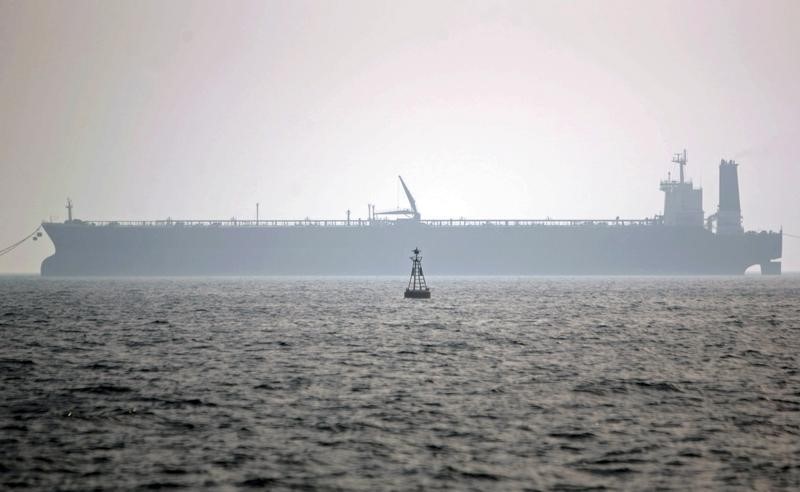TSX gains after CPI shows US inflation rose 3%
Investing.com -- The United States has introduced new sanctions on Russia that now include Rosneft and Lukoil, the two largest exporters of Russian crude oil. These companies account for approximately 50% of Russian crude oil exports, equivalent to about 1.8 million barrels per day.
Frontline shares have risen 3% in Oslo trading.
If these sanctions lead to a significant decline in Russian exports, the volumes could be replaced by other OPEC+ members, particularly Saudi Arabia. While transportation distances would decline, lowering overall tanker demand, a number of vessels from the "dark fleet" would become unemployed. Most of these vessels likely would not compete with open fleet vessels in the short term.
In a scenario where the sanctions effectively reduce Russian crude exports by 1.5 million barrels per day, with other OPEC+ members filling the gap, and dark fleet capacity (approximately 6% in VLCC equivalents) is retired and replaced by vessels from the open fleet, utilization in the VLCC market could increase from the current 90% to about 96%. This would potentially lead to further near-term rate improvements.
However, there remains skepticism about the impact of sanctions, which so far have not had any meaningful effect on the tanker market. China is expected to continue purchasing Russian crude and might increase its purchases if India switches to Middle East volumes.
Currently, tanker rates are at peak levels, with the weighted crude tanker rate at approximately $79,500 per day. This is in line with recent peak levels from September and represents increases of 66% and 90% compared to the third quarter and the 2024 average, respectively.
Kepler notes that rates are peaking and asset prices have already peaked, with values for modern crude carriers declining 8% year-over-year, while modern product tankers have seen a 20% year-over-year decline.
This article was generated with the support of AI and reviewed by an editor. For more information see our T&C.
